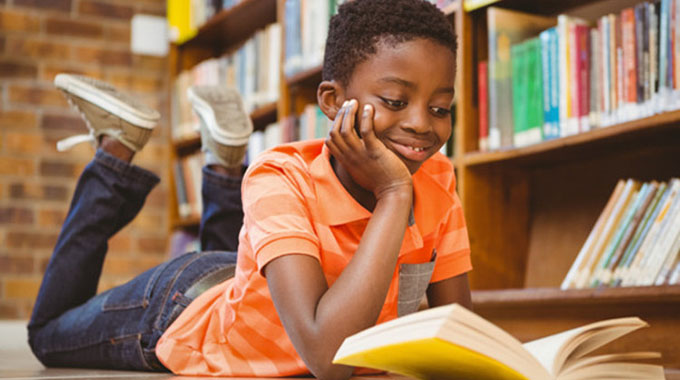Crimes that we commit against hope

Elliot Ziwira At the Bookstore
Imagine an existence without hope in a society where individuals are too engrossed in the rat race to acquire as much of the material world as they can to care about their neighbours’ troubles; then you are imagining a world burdened by crime.
The crimes that you and I commit on a daily basis; the crimes that rob us all of hope.
And there are many such crimes.
We have been burdened left, right and centre, and we have become a people that worry so much about what the future holds for us.
But then with such an attitude what will become for the future, the future of our children? There is need to go back to the past and determine where the rain started beating us, as Chinua Achebe advocates, for it is not taboo to go back and claim what is at risk of being left behind (Ghanaian Sankofa philosophy), because that is the only way to map a way forward.
Gentle reader, friend, countryman, has it ever occurred to you that you are as much responsible to your family’s welfare as you are to the well-being of fellow citizens?
Your story can inspire someone out there if you make it part of their story. We need to hear more of our stories; stories of our toil, stories of our struggle and hope. What happened to our story?
Thinking of the many crimes we commit against ourselves and others am drawn to Joseph Brodsky, who says: “There are worse crimes than burning books. One of them is not reading them.”
If for one reason or the other you find yourself burning books, then you are a criminal, and if you do not find time to read them, you are a worse criminal.
But, tarry a little here fellow citizen, there is another crime that you are committing, for Judy Blume says, “It’s not just the books under fire now that worry me. It is the books that will never be written. The books that will never be read.”
There is a story that you are holding onto that can change an attitude, a life, open a door and fashion dreams out there. There is need to go back to the history of our struggle and capture all that has to do with what has become of our dream, and we can only do so if we share stories of hope.
It seems there are no more stories of hope now. What happened to the mirth in our laughter? What happened to the spring in our Zimbabwean step?
Are we so burdened and hopeless that we can no longer write inspirational stories? And have we become so busy that we cannot spare a few minutes to read? Or maybe, there is nothing to read anymore!
Most people I know today will do anything just to avoid reading, because reading to them has become both futile and cumbersome. Were it not for examinations they would opt for a book-free existence.
There is no worse crime that one can commit against humanity than that which robs it of books, for, as Vera Nazarian intimates; “whenever you read a good book, somewhere in the world a door opens to allow in more light.”
It is in books that history is reflected, and it is in books that our toil is projected and our future is shaped. Reading is as enlightening as it is ennobling, therapeutic and satiating, because, after all, a good book says enough about us to know who we are.
There may be other ways, really, but there is no better way of self-empowerment than encouraging yourself, your children, and your people to read and there is no better way of making others read than writing a good book and reading it to them.
The late poet of repute Maya Angelou once said: “Any book that helps a child to form a habit of reading, to make reading one of his deep and continuing needs, is good for him.”
A community that doesn’t read or encourage reading is likely to become a community of naysayers, prophesying doom on social media platforms, always throwing a negative word on others’ efforts, without offering solutions.
In such a community, children are robbed of cultivators of reading habits.
There is need to inculcate reading habits in our children. But if we are all book-wary, who informs them on what to read? Are libraries doing enough to encourage informed reading through stocking of adequate and appropriate books? Are the books our children are accessing doing justice to their hunger to learn about themselves; their history, and the world at large?
Now that the reader is too hard done to read, and the writer too demoralised to write, what will become of our society? If the librarian has no books on offer or has become unreliable on matters to do with books, and the bookseller has nothing to sell, what will become of us at the Bookstore, who live on books?
Gentle reader, these and more, are the questions that will always weigh us down in our attempt to harness the reading culture, which somehow refuses to be reined in, especially in the wake of technological advancements offering other outlets for entertainment.
We need to commit less crimes against fellow countrymen, by committing ourselves to reading and writing our own stories, instead of allowing outsiders to be the heroes and heroines in the story of our struggle, our toil and our hope. It is easy to pick a well-read man from a bunch of mediocre pretenders, for, “if we encounter a man of rare intellect, we should ask him what books he reads,” Ralph Waldo Emerson.
Such is the power of books, such is the power of “eating book”, as they say; and surely you cannot be that man or woman to take the brunt of all the crimes blamed on lack of reading.








Comments